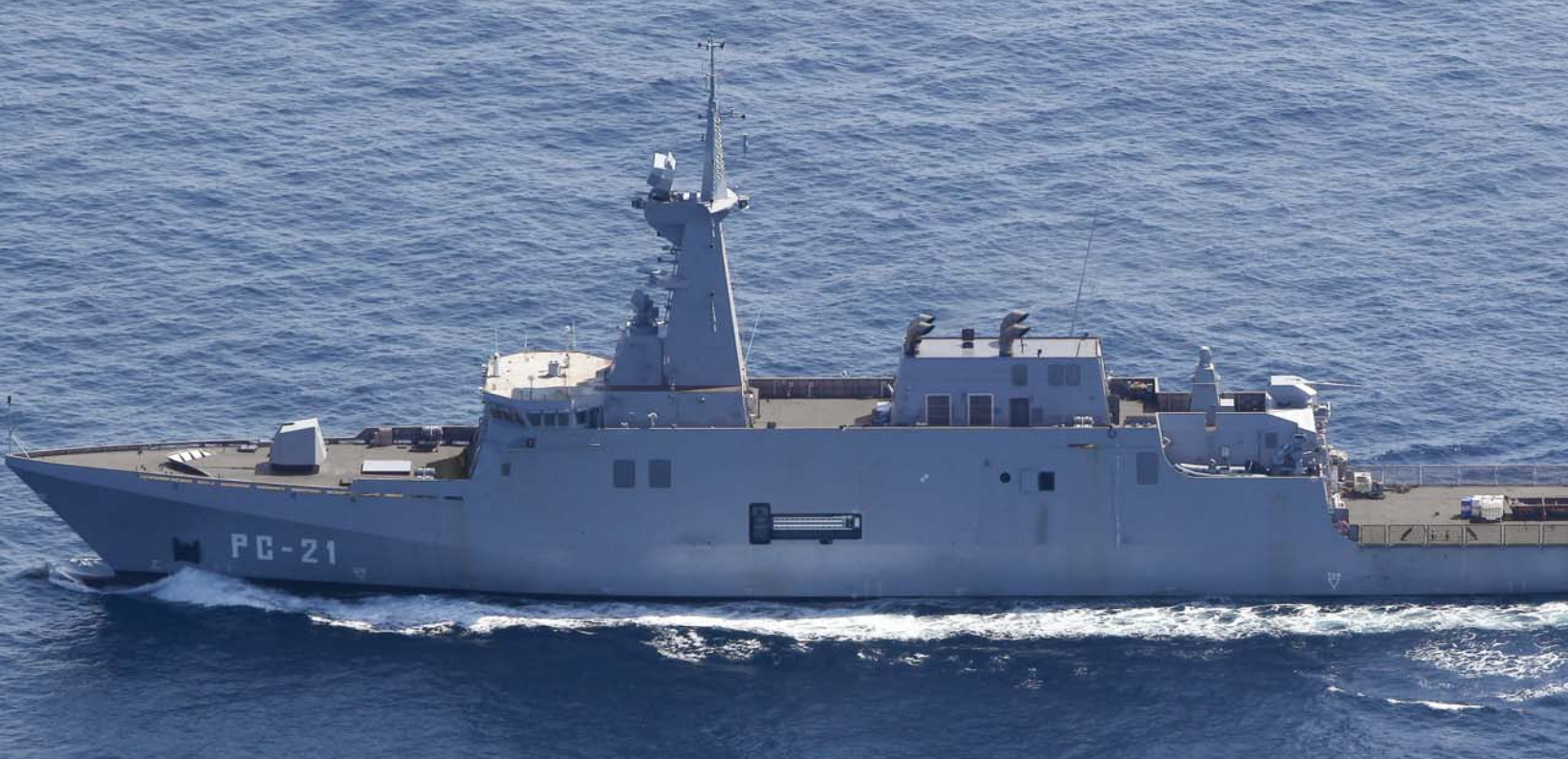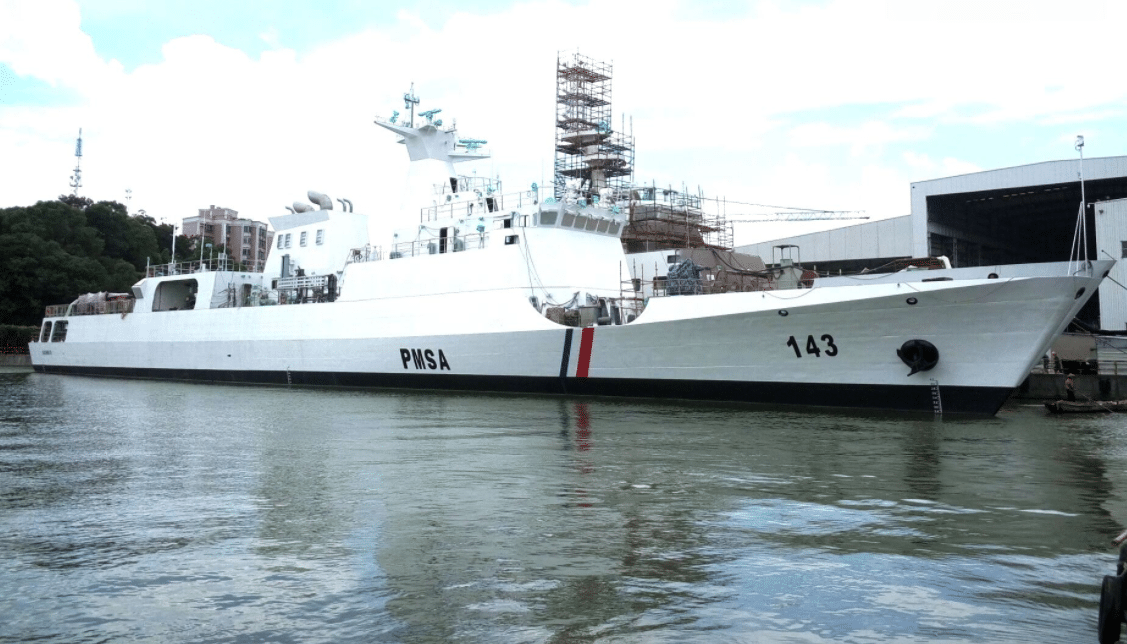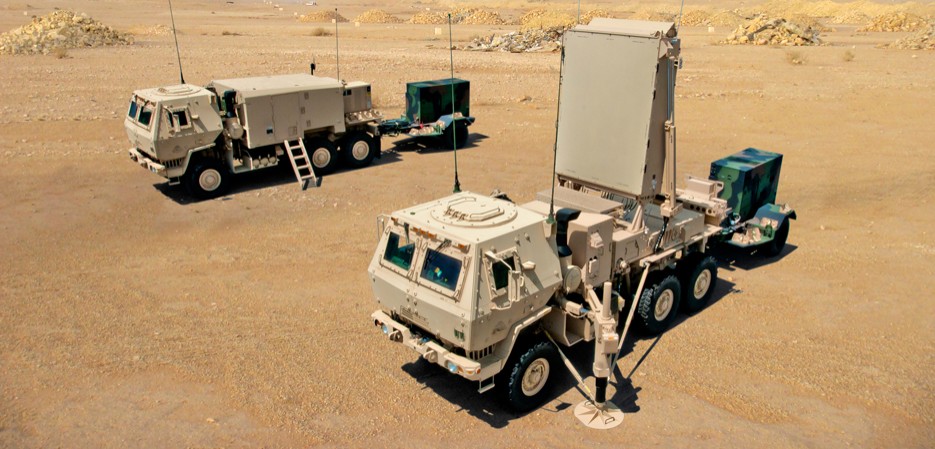2358Views 1Comment

Spanish shipbuilder Navantia aiming for growth in the Middle East
At the 2017 Naval Defence Exhibition and Conference (NAVDEX) and International Defence Exhibition and Conference (IDEX), which took place last week in Abu Dhabi, the Spanish shipbuilder Navantia voiced its intent to expand its market-share in the Middle East market.
Notes & Comments:
Currently, Navantia is aiming to ink a multi-billion dollar sale of five Avante 2200-based surface warships to Saudi Arabia, which is reportedly close to finalization. The 2,400-ton vessel is a multi-mission platform capable of anti-ship warfare (AShW), anti-submarine warfare (ASW), and anti-air warfare (AAW).
Navantia had displayed a concept of its proposal for Saudi Arabia, which reportedly included two quad-cell launchers for Harpoon Block-II anti-ship missiles (AShM), two triple torpedo-launchers, and 16-cell vertical launch system (VLS) for the MICA-VL or Evolved Sea Sparrow Missile (ESSM), a 76-mm main gun, two 12.7 mm remote weapon stations, and Rolling Airframe Missile (RAM) point-defence system.
The region is in the midst of widespread defence modernization programs. Alongside Saudi Arabia, Qatar and the United Arab Emirates (UAE) are also procuring big-ticket defence hardware. In June 2016, Qatar inked a U.S. $4.47 billion purchase for five corvettes, two offshore patrol vessels and a landing platform dock from the Italian shipbuilder Fincantieri. Last week, the UAE commissioned the Al Hili, its sixth (and final) Baynunah-class corvette.
Besides mature industry players such as Navantia, the Middle East market is also seeing the entry of newer shipbuilders, most notably from Turkey. Yonca-Onuk sold MRTP 34 and MRTP 16 boats to Qatar and the defence contractor Savunma Teknolojileri Mühendislik ve Ticaret A.Ş. (STM) is looking for opportunities for its vast portfolio, especially the MILGEM Ada corvette. South Korea’s Hyundai Heavy Industries and Daewoo Shipbuilding & Marine Engineering (DSME) are likely to enter the competition as well.
Interestingly, the Arab Gulf forces have yet to place conventional submarines into their respective plans. Saudi Arabia had sought to procure systems from Germany’s ThyssenKrupp Marine Systems (TKMS) in 2014, but it is not clear where these efforts currently stand. Qatar and the UAE have yet to factor in diesel-electric submarines (SSK) into their respective naval programs, though both countries should stand to see the value of SSKs for anti-access and area denial operations.



1 Comment
by Zain YG
Well, I’m Pakistani Spaniard, born in Pk lived here since 2, years old, and people are not amused about this at all, specially political analysts, and of course the opposition party, there is a light anti muslim sentiment, and a incoherent fear of sharia law threat over ignorant adherence to fake anti muslim propaganda like everywhere in the West.
It will be very difficult for this company to do business, the voices against this are more than for it.
I personally support this, everyone is benefitting from the arms sale, why not my country as well lol.